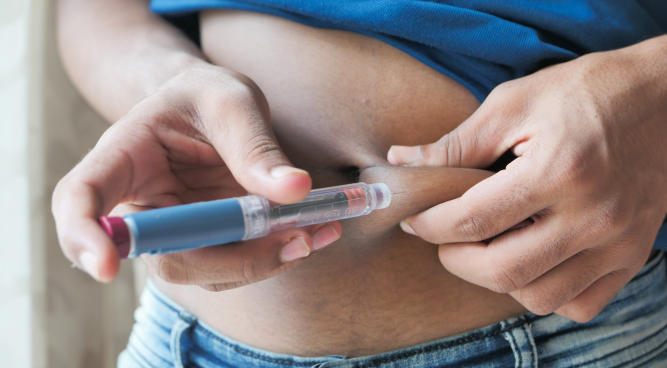Introduction
In the United Kingdom, the failure of General Practitioners (GPs) to diagnose diabetes accurately can have severe consequences for patients. Misdiagnosis or delayed diagnosis can lead to worsening health conditions, complications, and even life-threatening situations. Patients who have sorrowed as a result of GP negligence in diagnosing diabetes may be authorised to compensate for their physical, emotional, and financial damages. In this report, we will explore the topic of GP Failure to Diagnose Diabetes Compensation UK.
GP Failure to Diagnose Diabetes Compensation UK: Unraveling the Consequences
The Importance of Timely Diagnosis
Diabetes is a complex metabolic disorder that requires early detection and appropriate management to prevent long-term complications. When GPs fail to identify the warning signs and symptoms of diabetes, it can have detrimental effects on patient’s health and well-being.
Understanding the Impact on Patients
1. Physical Health Implications
· Uncontrolled blood sugar levels leading to organ damage
· Diabetic ketoacidosis (DKA) resulting in life-threatening situations
· Increased risk of cardiovascular diseases
· Vision problems and potential blindness
· Nerve damage and peripheral neuropathy
2. Emotional and Psychological Toll
· Anxiety and depression due to the impact on daily life and health uncertainties
· Loss of confidence in healthcare providers
· Stress caused by financial burdens associated with medical expenses
3. Financial Burdens
· Costs of medical treatments, hospitalizations, and medications
· Loss of earnings due to reduced ability to work
· Rehabilitation expenses and ongoing care requirements
Seeking Compensation: The Legal Perspective
Patients who have experienced GP failure to diagnose diabetes may be eligible for compensation through the UK legal system. However, establishing a successful claim requires meeting specific criteria and providing substantial evidence.
Grounds for a Compensation Claim
To pursue a compensation claim for GP failure to diagnose diabetes, the following elements must be established:
1. Duty of Care
· Establishing a doctor-patient relationship and the responsibility of the GP to provide accurate diagnosis and timely treatment.
2. Breach of Duty
· Demonstrating that the GP’s actions or lack thereof fell below the average expected of a competent medical professional.
3. Causation
· Proving that the GP’s failure to diagnose or delay in diagnosis directly resulted in harm, worsening health conditions, or complications.
4. Damages
· Quantifying the physical, emotional, and financial damages suffered by the patient due to the GP’s negligence.
Consequences
When GPs fail to diagnose diabetes accurately, patients may suffer from severe physical, emotional, and financial consequences. Seeking compensation for GP negligence is a viable option for those affected. By understanding the legal aspects and gathering substantial evidence, patients can pursue justice and receive the compensation they deserve. If you acknowledge you have been a victim of GP failure to diagnose diabetes, consult with a solicitor experienced in medical negligence to assess the merits of your case and explore the available legal options. Check out more about GP Negligence

Frequently Asked Questions (FAQs)
FAQ 1: What should I accomplish if I suspect my GP failed to diagnose my diabetes?
If you suspect your GP failed to diagnose your diabetes, it is essential to seek a second opinion from another healthcare professional. Document any symptoms, consultations, and interactions with your GP for future reference.
FAQ 2: Can I make a claim GP Failure to Diagnose Diabetes Compensation UK if I have already received treatment?
Yes, you can still pursue a compensation claim even if you have received treatment. However, it is necessary to consult with a legal professional who specializes in medical negligence to evaluate the viability of your case.
FAQ 3: How long do I have to make a claim for GP Failure to Diagnose Diabetes Compensation UK?
In the UK, you generally have three years from the date of the incident or the date you became aware of the negligence to initiate a compensation claim. It is advisable to confer with a solicitor as soon as possible to avoid missing any crucial deadlines.
FAQ 4: What evidence is required to support a GP Failure to Diagnose Diabetes Compensation UK?
To support your compensation claim, it is essential to gather all relevant medical records, test results, consultations, and any other documentation related to your case. Witness statements, expert opinions, and financial records may also be necessary.
FAQ 5: How long does the compensation claim process for GP failure to diagnose diabetes typically take?
The duration of the compensation claim process can vary depending on the complexity of the case, the cooperation of the parties involved, and the court’s schedule. It is advisable to consult with a solicitor who can provide a more accurate estimate based on your specific circumstances.
FAQ 6: What compensation can I expect if my GP fails to diagnose my diabetes?
The amount of GP Failure to Diagnose Diabetes Compensation UK varies depending on the individual circumstances of the case. Compensation may cover medical expenses, loss of earnings, restoration costs, emotional distress, and pain and suffering.
Table
Here’s an example of a table related to GP Failure to Diagnose Diabetes Compensation UK:
| Factors to Consider in GP Failure to Diagnose Diabetes Compensation Claims |
| Factors |
| Duty of Care |
| Breach of Duty |
| Causation |
| Damages |
| Medical Records |
| Witness Statements |
| Expert Opinions |
| Financial Records |
| Timely Legal Advice |
| Case Complexity |
